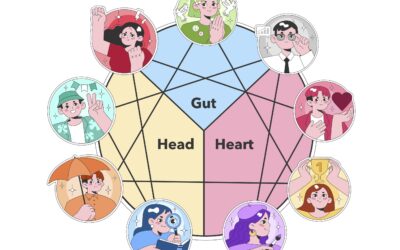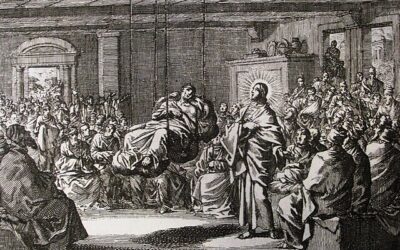by Violet Cucciniello Little—
I stood at my neighbor Stephanie’s dining room table, paying close attention to her instructions. Stephanie was teaching me how to fold small circles of dough into triangles that would cradle the dollops of sweet fruit filling we’d spooned into their centers. Stephanie and her two young children were showing me how to make hamantaschen, traditional three-cornered cookies baked to commemorate the Jewish festival of Purim.
From what I remembered of the book of Esther, however, the origins of this festival were anything but sweet. We see a king who had too much to drink firing his queen because she would not come to him when summoned to be paraded before all the men of the kingdom. This queen—Vashti—is then replaced by another woman, Esther, chosen mostly for her looks, who, as the next queen, is forced to hide her Jewish identity. Then comes the threat of genocide—all because the queen’s uncle challenges the authority of the king’s chief advisor!
Even in the end—when good wins out over evil and the Jewish people are spared—the solution is not one that ends in total peace. So why is Purim a time celebrated with sweet treats, playful costumes and other fun activities? With this question in mind, I sat with Queen Esther to see what I could learn.
NOW HERE
Early on we read that Esther is an orphan being raised by her cousin, Mordecai, who has himself known captivity. Coming from the margins of society, Esther suddenly finds herself in a position of power and privilege as the new queen. To make that position even stronger, based on information she receives from Mordecai, Esther warns the king that two of his guards have formed a plot to kill him. The guards are executed, and the king appoints Haman as chief of staff. In a turn of events that strongly resembles Vashti’s act of defiance at the beginning of the story, Mordecai refuses to bow down to Haman. Haman finds out that Mordecai is Jewish, so he convinces the king to have all the Jewish people in the kingdom killed.
At this point Esther is faced with a difficult, life-threatening decision. If she goes to the king—the “inner circle” —without being summoned, she could be put to death. Moreover, if she reveals her Jewish identity—a secret hidden from the king—she could also be put to death. But Esther could also do nothing and continue to enjoy all the power and privilege that comes with being queen. So Mordecai addresses Esther, saying, “Do not think that in the king’s palace you will escape any more than all the other Jews. For if you keep silent at such a time as this, relief and deliverance will rise from the Jews from another quarter, but you and your father’s family will perish. Who knows? Perhaps you have come to royal dignity for just such a time as this.”
Mordecai believes that deliverance will happen at some point, but he also believes that Esther has been put in this position for deliverance to happen now.
Timing is everything.
Martin Luther King Jr. knew a bit about that when he wrote his “Letter from Birmingham Jail.” This great public letter was written in response to a newspaper plea signed by eight Alabama priests, rabbis and ministers. The clergy were convinced that the civil rights demonstrations in Birmingham were “unwise and untimely,” and urged the African American community in Birmingham to withdraw their support for these demonstrations. To this, Dr. King replied: “I cannot sit by idly in Atlanta and not be concerned about what happens in Birmingham. Injustice anywhere is injustice everywhere…” At the risk of losing his life, Dr. King knew the time to address that injustice: now.
And so it was for Queen Esther who replied to her cousin: “I will go to the king though it is against the law…if I perish, I perish.”
Few of us will ever be faced with such a life-threatening decision; yet in a way, we are placed in this position every day. God places us in locations and situations that may seem like nowhere and tells us that we are now here. I remember listening to a friend tell a joke that had racist implications. When I pointed it out, I didn’t lose my life, but I did lose a friend. Still, there are many times when I don’t say anything, or when I ignore the suffering of another—just because I feel powerless or I don’t want to risk my own comfort. God places us in situations that might seem like nowhere and says that we are now here—for such a time as this.
The Rev. Violet Cucciniello Little is mission developer of The Welcome Church, an ELCA congregation under development in Philadelphia.
This article is from the June 2019 issue of Gather magazine. To read more like it, subscribe to Gather.
More like this:
A priceless gift
In 1993, my husband and I moved from Southern California where I’d grown up to Berkeley, where I would begin graduate school. I was excited to be on this new adventure with the man who had been my high school sweetheart. We were off on our own, and anything was...
In the image of God
If you were to attend Sunday service at Holly Grove Lutheran Church in Lexington, North Carolina, you might notice that Pastor Anna E. Carter rarely leads worship alone. As she sets the table, serves communion, and processes down the aisle, there is a little boy at...
Faith in economics
What is the rule of your household? How do you manage your home? How do you make sure that everyone gets what they need and sometimes what they want? Who feeds the dog or cleans up after the cat? Who does the grocery shopping, and who pays for the groceries? How are...





